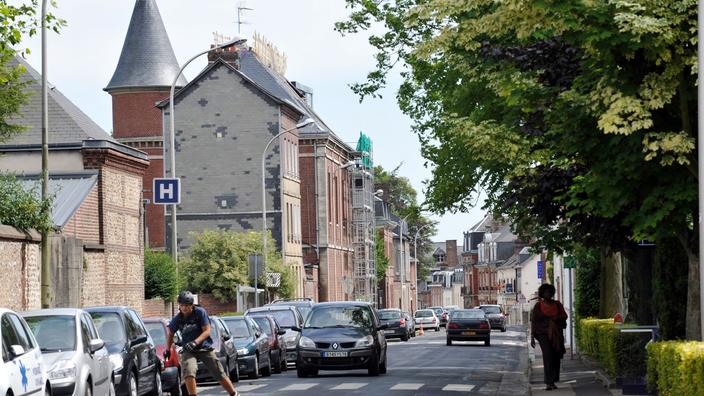This should be of particular interest to Parisian motorists.
The public establishment Cerema, placed under the tutelage of the Minister for the Ecological and Inclusive Transition, highlights, in his report, that cars pollute more at 30 than 50 km / h at average speed.
"
For light vehicles as for heavy goods vehicles, emissions are significant at very low speed (up to approximately 30 km / h)
", highlights the report.
A first study published in 2009 already reached this conclusion.
Read also Traffic limited to 30 km / h in almost all of Paris from the end of August
According to data published by the Cerema Institute, a private vehicle going at an average speed of 30 km / h emits 18.9% more carbon dioxide emissions than if it was traveling at 50 km / h.
At 50km / h, a car emits 164.7 grams of CO2 while it emits 195.9 at 30km / h.
The least polluting average speed is 70km / h for emissions of fine particles, nitrogen oxides and carbon dioxide, explains Cerema.
Indeed, road transport exhaust emissions come from fuel combustion, a process which mainly produces carbon dioxide but also fine particles (PM) or nitrogen oxides.
The level of these emissions remains relatively stable between 50km / h and 90km / h.
On the other hand, it is particularly high around 10 km / h.
"
Road traffic congestion situations are very penalistic from the point of view of air quality
", concludes the Cerema study.
CO2 emissions of a private vehicle as a function of speed Credit: Report from Cerema, a public institution under the supervision of the Minister for the Ecological and Inclusive Transition
The publication of this study last April comes when the maximum speed of traffic will be precisely lowered to 30 km / h from August 30 in almost all of Paris. The application of the conclusions of this study, namely that cars going at 30 km / h are more polluting than those at 50 km / h, is however questioned for trips in town. “
In urban journeys, motorists are never at an average speed. They accelerate, detect, stop at traffic lights. This conclusion does not apply to these journeys,
”claims Marie Cheron, mobility manager within the Nicolas Hulot foundation.
Contacted by
Le Figaro
, Cerema preferred not to comment on the relevance of its conclusions for the city.
In 2013, however, the public establishment published that: “
these curves are unsuitable for evaluating the impact of zones 30. Indeed, the installation of a zone 30 does not presuppose that the average speed practiced before was of the order 50 km / h (top speed that can only be reached when the flow of traffic is fluid and there is a sufficiently long section, without bends, without retarding device and without crossroads, intersections being the elements which punctuate the course of the vehicles).
"
Priority to road safety and reduction of noise pollution
For Fatoumata Koné, president of the Paris Climate Agency, which supports the measure taken by the City of Paris, this observation does not change anything. “
The Cerma study focuses on average speeds. Outside the city, especially in Paris, we spend our time accelerating and then braking. The reduction in speed in Paris is not implemented for air pollution control issues but to respond to road safety issues such as reducing accidents and protecting pedestrians as well as responding to the challenges of noise pollution,
”she says. The Ademe guide for the development of environmental noise prevention plans indeed notes a reduction in noise of the order of 3 decibels when a car is traveling at 30 km / h instead of 50.
Read also The list of tracks in Paris on which it is still possible to travel at 50 km / h
The transition to this new maximum speed of movement should also, according to her, reduce the number of cars circulating in the city.
"
There will be a shift in modality from the car to the bicycle or public transport, which will compensate for the additional pollution of cars going at 30 km / h
", claims Fatoumata Koné.
No quantified modeling of this potential transfer has yet been unveiled for Paris.
In Grenoble, the first large city in France to have gone to 30km / h in 2016, the Cerema establishment pointed out a decrease in motorized traffic between 2016 and 2018 (-9% of light vehicles and - 20% of heavy goods vehicles). To see how many Parisian motorists will choose to abandon their cars so as not to have to move at this new speed ...








